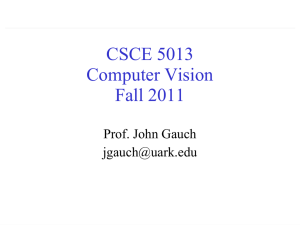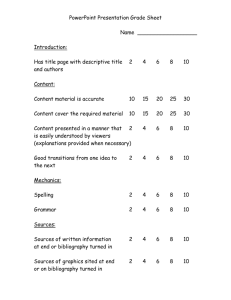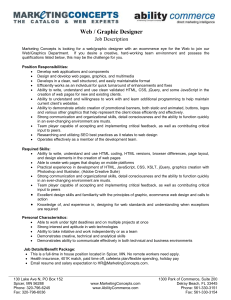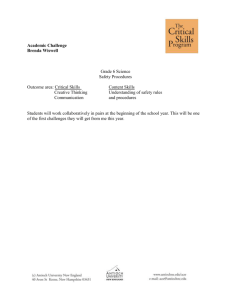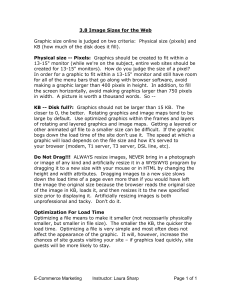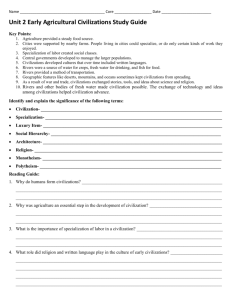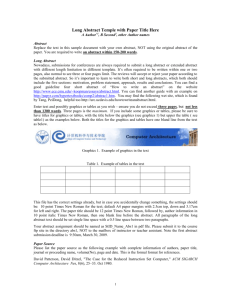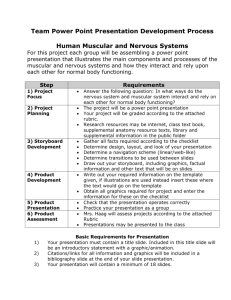Core Civilizations Presentations
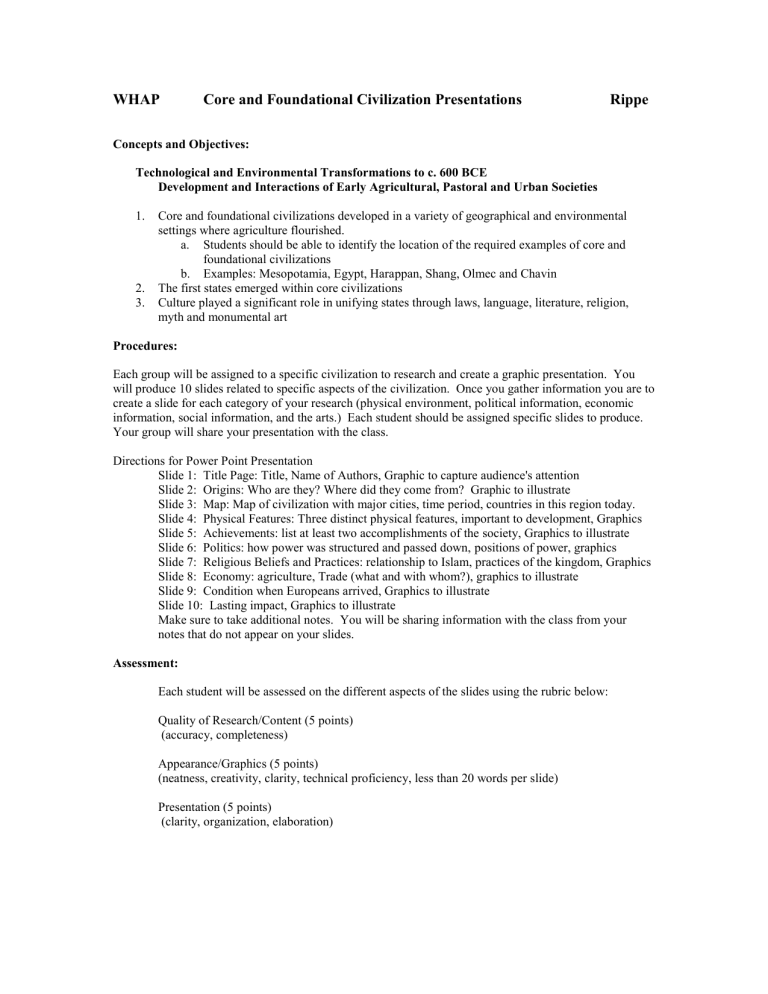
WHAP Core and Foundational Civilization Presentations Rippe
Concepts and Objectives:
Technological and Environmental Transformations to c. 600 BCE
Development and Interactions of Early Agricultural, Pastoral and Urban Societies
1.
Core and foundational civilizations developed in a variety of geographical and environmental settings where agriculture flourished. a.
Students should be able to identify the location of the required examples of core and foundational civilizations b.
Examples: Mesopotamia, Egypt, Harappan, Shang, Olmec and Chavin
2.
The first states emerged within core civilizations
3.
Culture played a significant role in unifying states through laws, language, literature, religion, myth and monumental art
Procedures:
Each group will be assigned to a specific civilization to research and create a graphic presentation. You will produce 10 slides related to specific aspects of the civilization. Once you gather information you are to create a slide for each category of your research (physical environment, political information, economic information, social information, and the arts.) Each student should be assigned specific slides to produce.
Your group will share your presentation with the class.
Directions for Power Point Presentation
Slide 1: Title Page: Title, Name of Authors, Graphic to capture audience's attention
Slide 2: Origins: Who are they? Where did they come from? Graphic to illustrate
Slide 3: Map: Map of civilization with major cities, time period, countries in this region today.
Slide 4: Physical Features: Three distinct physical features, important to development, Graphics
Slide 5: Achievements: list at least two accomplishments of the society, Graphics to illustrate
Slide 6: Politics: how power was structured and passed down, positions of power, graphics
Slide 7: Religious Beliefs and Practices: relationship to Islam, practices of the kingdom, Graphics
Slide 8: Economy: agriculture, Trade (what and with whom?), graphics to illustrate
Slide 9: Condition when Europeans arrived, Graphics to illustrate
Slide 10: Lasting impact, Graphics to illustrate
Make sure to take additional notes. You will be sharing information with the class from your notes that do not appear on your slides.
Assessment:
Each student will be assessed on the different aspects of the slides using the rubric below:
Quality of Research/Content (5 points)
(accuracy, completeness)
Appearance/Graphics (5 points)
(neatness, creativity, clarity, technical proficiency, less than 20 words per slide)
Presentation (5 points)
(clarity, organization, elaboration)

